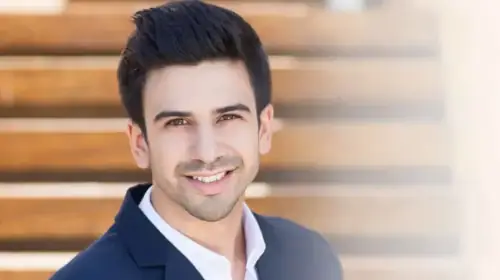

The hair transplant cost in India starts from around INR 75 (approx. USD 1) onwards for FUE and FUT hair transplant cost in India starts from around USD 100 and varies depending on the number of follicles required or the area to be covered, surgeon, medical history- if you have any, facility and the city where you choose to get the procedure done.
An important expense when it comes to your hair transplant is going to be your specialist's fees. IndiCure hand-picks an experienced, skilled, board-certified specialists who are capable of delivering natural-looking results. Although the price tag may vary depending on the experience of the surgeon, you can be assured that you are in safe and skilled hands when you choose hair transplant in India with IndiCure.
Depending on one's needs, men and women of all ages can benefit from two types of hair transplant procedures. IndiCure recommends you to explore the hair transplant surgical options by consulting our expert hair transplant surgeons.
Having your hair transplant in an accredited surgical facility by skilled and qualified medical staff is a critical factor. Moreover, the geographical location of this facility in India also affects the initial quote. But, IndiCure provides you with a projected estimate that will be all inclusive and affordable.
The surgery-related expenses include the pre- and post-surgical expenses. The pre-surgical expenses are associated with the candidacy and the medical history of the patient. This also includes the routine medical exams and tests to ensure you're a good fit for hair transplant procedures. Post-surgical expenses may include prescription.
We at IndiCure, understand that you travel with a budget in mind and do not like to be greeted by surprises after arrival in India. We thus club all these expenses and give you the package cost that is inclusive and affordable at the same time.
Your case manager shall give you an estimated cost of your surgery after discussing your medical reports with the surgeon. The final cost, however, shall be confirmed after your consultation with the surgeon.

We Help you Choose the Right Treatment, Surgeon & Hospital

We Arrange Video/Telephonic Consultation with the Surgeon

We Assist you with Visa & Accommodation

We Receive you at the Airport and Drop you at Hotel/Hospital

We Assist you the at Hospital & Provide Post Operative Support
Years of Experience
Happy Clients
Countries Patient Treated
Most Affordable Price
Every hair transplant performed by our surgeons is a distinctive design tailored to your preferences and desires, as evident in the before-and-after images below.
Hair transplantation or Hair transplant is the procedure through which individual hair follicles are transplanted from a part of the body to another which is balding. The site from where the hair is taken, is the donor site and where transplanted is the recipient site. Besides scalp hair, the procedure can also be performed to restore hair of beard, mustache, eyebrows, eyelashes etc.
Medical conditions: Heredity, male pattern baldness, anemia, hypothyroidism, Vitamin B deficiency, autoimmune-related hair loss, polycystic ovary syndrome, trichotillomania and such other medical conditions can lead to hair loss.
| Surgery Time | Depends on the number of follicles |
| Anesthesia Type | Local Anesthesia |
| Hospitalization | Outpatient |
| Stitch Removal | Stitches of donor site either get dissolved or can be removed after 10 days |
| Initial Recovery Time | No downtime, normal activities can be resumed the same day |
The procedure is generally indicated in the following conditions:
The 3 main hair transplant methods are:
Follicular Unit Transplantation (FUT): In this procedure, a strip of tissue with hair is removed and the hair follicles from it are implanted in areas that have scanty hair.
Follicular Unit Extraction (FUE): In this procedure, a small punch is used to remove individual hair follicles. They are then implanted in the scalp using a fine needle point instrument. One of the most popular hair transplant methods, it has a distinct advantage over FUT – it does not cause any scarring.
Direct Hair Implant (DHI): DHI is the most advanced hair transplant method. This treatment is a painless procedure that is performed using precise micro-surgical tools. The advantage of DHI is that each hair follicle is placed at a specific depth and angle which provides absolutely natural results along with maximum hair density.
The procedure involves taking a strip of skin along with the hair follicles from the donor area (back or side of the scalp of the patient) and cutting them in single or multiple sets of grafts.
When grafts are taken, your surgeon may periodically inject small amounts of saline solution into the scalp to maintain proper skin strength.
The donor site holes may be closed with stitches-for punch grafts, a single stitch may close each punch site; for other types of grafts, a small, straight-line scar will result. The stitches are usually concealed with the surrounding hair.
There is no recovery time/downtime necessary after hair transplantation surgery. Stitches of the donor site either get dissolved or can be removed after 10 days by any doctor near your place. The crust sheds off on its own gradually somewhere between 3-4 weeks.
Most transplanted hair usually shed in about 3 weeks but the roots remain alive and active under the skin and the new hair grows from them in 3-4 months.
Hair transplant is one of those procedures that have dramatic results. One can expect to have thick hair at the balding areas within 8-12 months after the procedure, which is permanent.
We at IndiCure completely understand your concerns and it is always our endeavor to provide the best outcome for every patient. Following is the list of questions you must ask before you embark on your journey for Hair Transplantation in India.
Prepare to answer questions about your:

Enhance your medical journey to India by availing these extra services.
Traveling abroad for medical reasons may be challenging. With our experience of over a decade and working with the best surgeons and top hospitals in India, we help make your medical tour easier and safer for you. We will guide you at every step of the way and make end-to-end arrangements for your surgery, travel, and stay.
Ramandeep Dhaliwal
I had great experience having rhinoplasty through Indicure. Dr. Ruchika from Indicure has helped me in finding best plastic surgeon, answering all my questions...
Read More
Joshua Archer
My name is Joshua Archer I'm from New Zealand, bay of plenty, kawerau I opted for the bypass surgery in January 2023 but planned it in advance for 28 September found IndiCure...
Read More
Kera Ren
Absolutely loved my experience with IndiCure - from first inquiring to meeting the surgeon pre op to my follow up post op. The surgeon was extremely approachable...
Read More
Andreana Paul
Had a wonderful experience. Visited India for my plastic surgery. From sending mails, airport pickup, comfortable accommodation and, to smooth hospital appointment booking...
Read More
Brandi Luce
I had the privilege of using Indicure's services for a cosmetic procedure that I had wanted for a long time but had always been apprehensive about. Ruchika helped me...
Read More
Jade M
Indicure Health Tours went above and beyond my expectations. They helped me with every aspect of my journey and were professional, kind and caring. I was...
Read More
The content on the website (www.indicure.com) is intended to be general information and is provided only as a service. All photographs on our website of before and after results are examples only, and do not constitute an implied or any other kind of certainty for the result of surgery.
Learn about IndiCure Health Tours' comprehensive editorial policy that strives to deliver trustworthy, helpful, relevant, accurate and people-first content on medical tourism in India.
It is not medical advice and should not be taken as medical advice. It should not be used to diagnose or treat a health condition and is in no way meant to be a substitute for professional medical care. You are advised to see a surgeon in person to assess what surgery may or may not accomplish for you.
It is also important to keep your expectations realistic and to understand that all surgical procedures carry risks and should never be taken lightly.